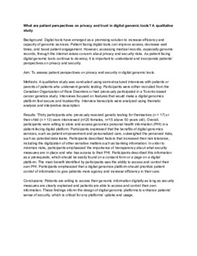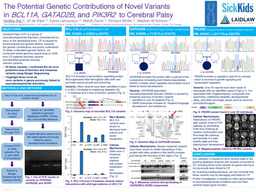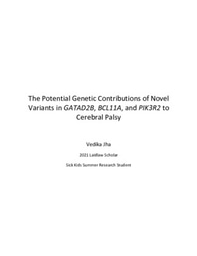Connections, Genomics, and Leadership -- My experience at ICHG
On the last Monday of February, I boarded a plane headed to the other side of the world. I was on my way to unlock many “firsts”: it was my first time going on a trip alone, my first time going to an international conference, and my first time giving a talk at a conference! I was going to the International Congress of Human Genetics (ICHG) 2023 Meeting in Cape Town, South Africa. There, I was going to give a talk on my Laidlaw Summer 2022 research project. When I applied to the ICHG conference in September as both a poster presenter and speaker, I could not have expected to be chosen at all, let alone as a speaker! I went into the trip feeling excited, but anxious and apprehensive.
The excitement, of course, came from the fact that I was for the first time going to be immersed in a group of so many people from so many places, all passionate about genetics just as I was. I have been interested in genetics since high school, and receiving the Laidlaw Scholarship in 2021 gave me the wonderful opportunity to work in a genomics lab for the first time, looking at genetic contributors to Cerebral Palsy. The next summer, I looked at genomics from a different perspective – exploring the patient experience with genomic testing in a qualitative study that explored privacy and security in digital genomics tools. During my Laidlaw experience, I have learned the importance of persistence and patience, the inevitability of failure and the requisite resilience, and the value in having a diverse array of skills.
However, the anxiety and apprehension was also palpable. It was hard not to feel isolated, alone, and most of all severely unqualified among world renowned researchers and graduate students that had been working for years on their projects.
Yet, I quickly discovered that these world renowned researchers and dedicated students were welcoming, engaging, and quite easy to talk to. Experienced or new to the field, young or old, we were all connected by our shared passion and our collective goal of improving medicine and human health through genetic research. The very purpose of this conference is for people from all over the world, of different educational backgrounds and specialties, to meet, share ideas, and collaborate. Without such events, how will people like me – young, eager scientists-in-the-making – ever learn from those more knowledgeable? Where else would I be able to hear ideas from and discuss topics with a nurse from Nigeria, a researcher from Korea, and a graduate student from Brazil?
The most enlightening topic of discussion for me was about equity in genomics. This was a key topic of the conference as well as something I have personal interest in. In fact, I stayed on with my Laidlaw Summer 2 research team in order to conduct a systematic review on the best practices to increase diversity in genomic studies and more equitably include underrepresented participants. At ICHG, I had the unique opportunity of asking global leaders on this topic their views on how to increase diversity in genomic studies and advance genomic research infrastructure throughout underserved countries. Every scientist said that the tasks are numerous, but emphasized the importance of collaboration and leadership: capable geneticists must take the initiative to drive the change, building consortiums and fostering long term partnerships with researchers in many countries in order to build capacity for genomics research. I was reminded of the Laidlaw Scholarship itself, and how its network and framework could be used to improve genomic capacity in underserved countries. I hope that in my career I can be a leader driving these changes in genomics globally.
In my free time between sessions, I managed to squeeze in some walking tours of the amazing city. On these tours of Cape Town, a city not so long ago torn apart by apartheid, I was once again reminded of the importance – as well as the challenges – of connection and unity. As a future genomics clinician-scientist, I hope that my work can foster connection and community both on a micro and macro scale.





Please sign in
If you are a registered user on Laidlaw Scholars Network, please sign in